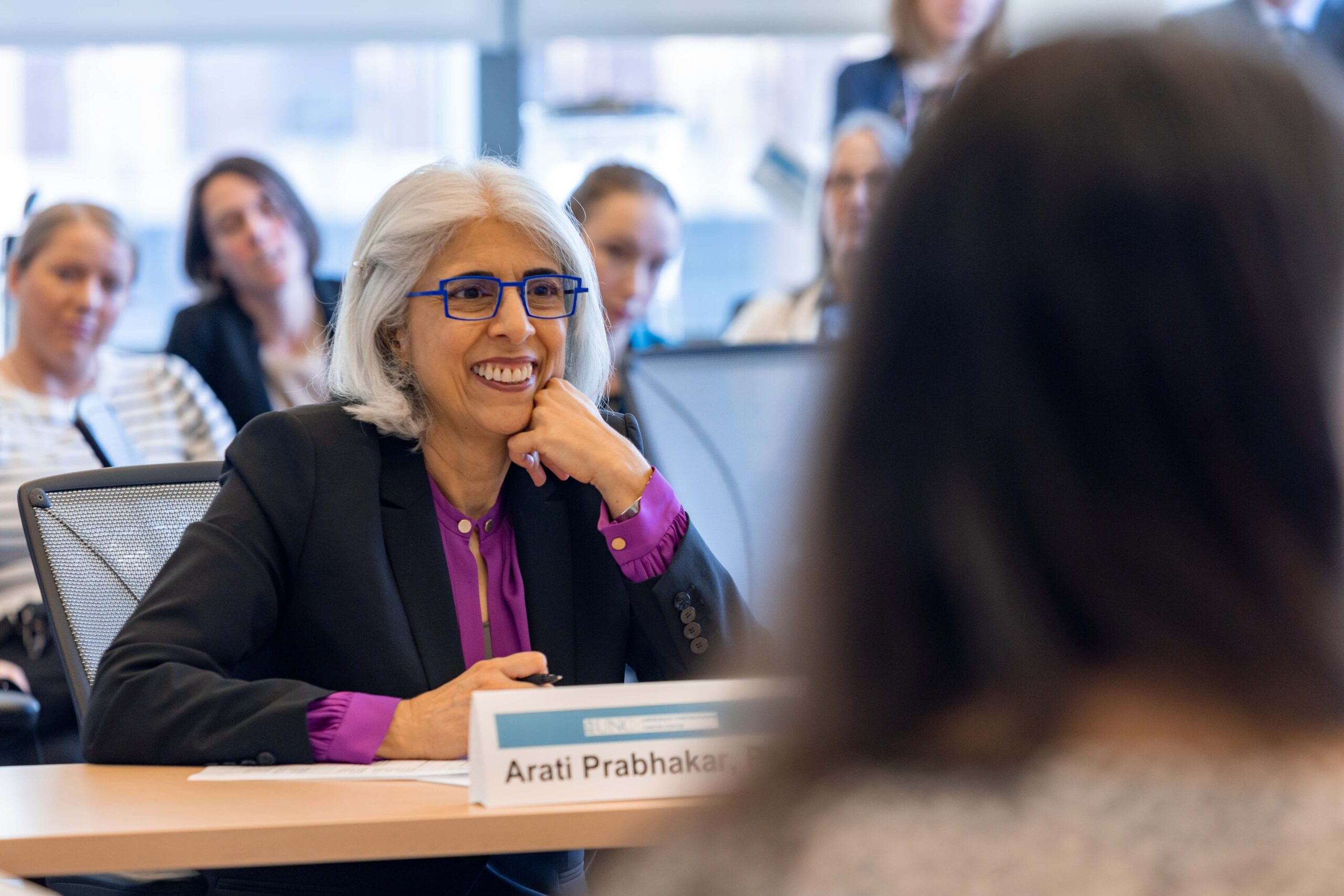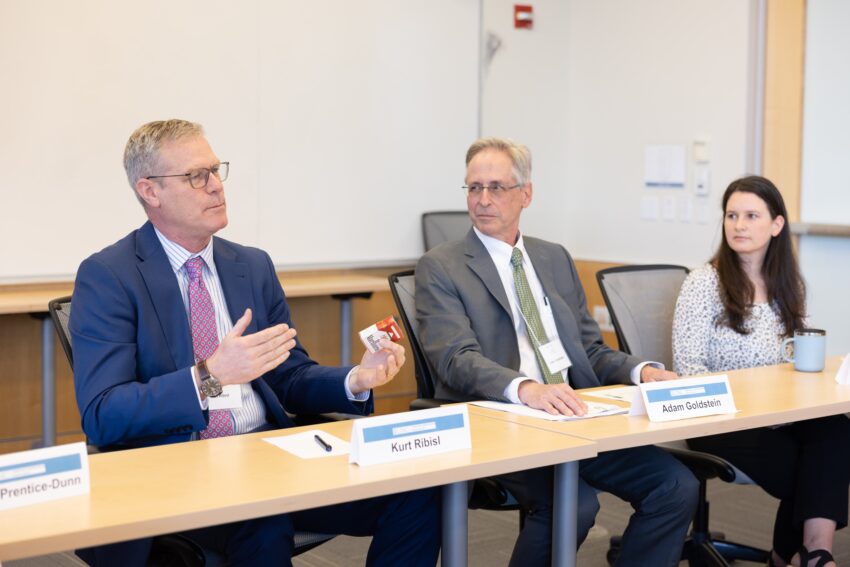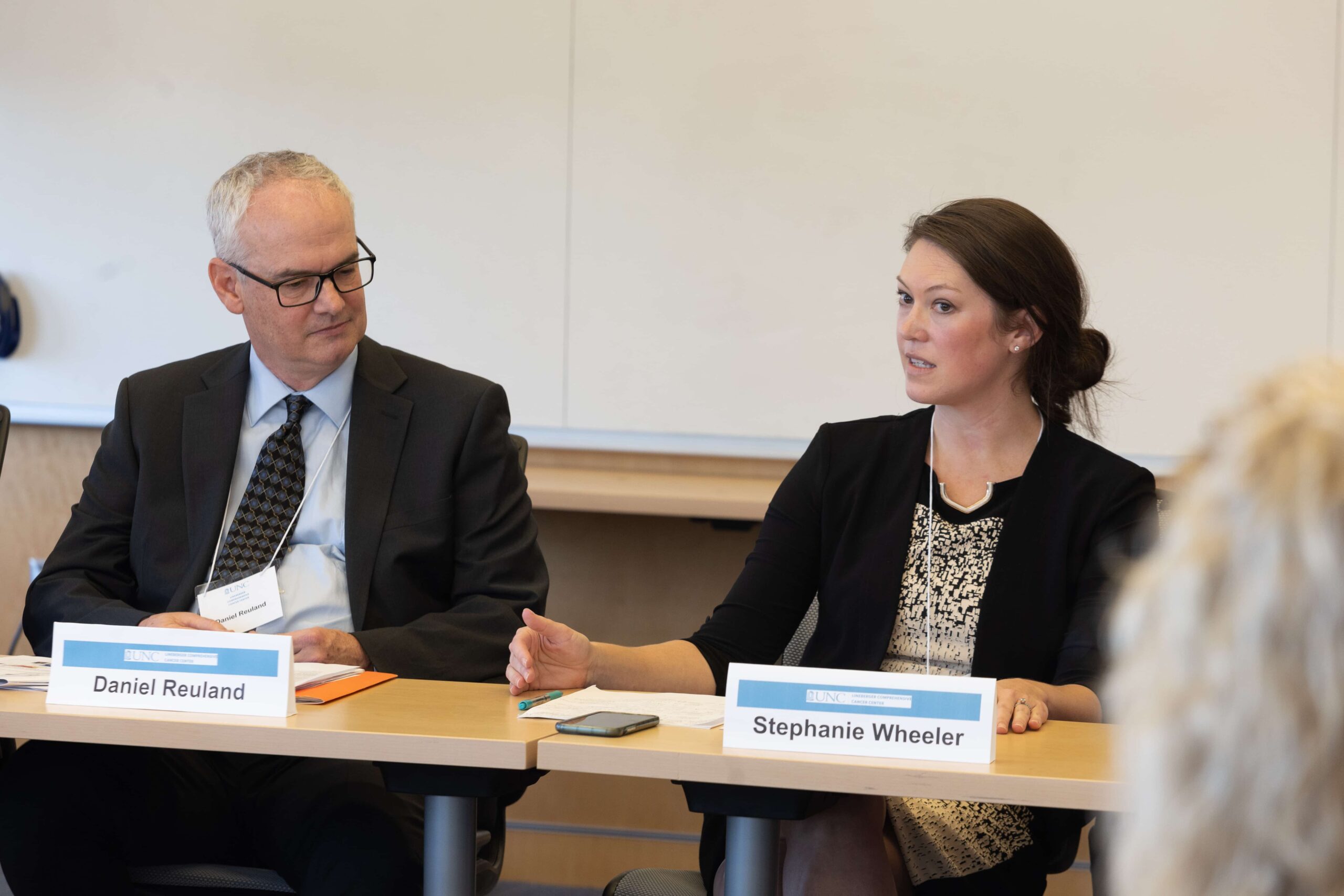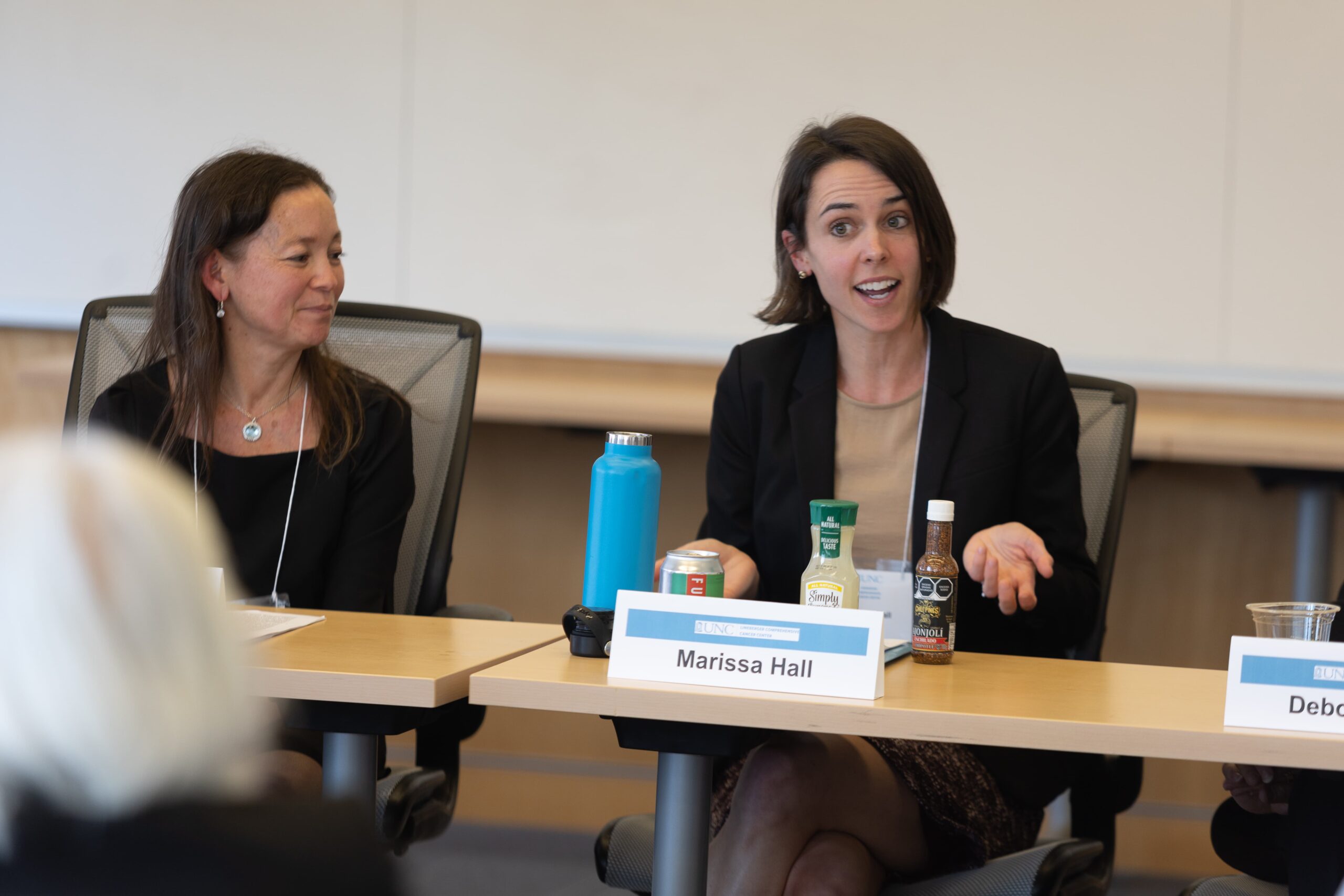
UNC Lineberger’s stature as a global leader in cancer research and its participation in the Cancer Moonshot program inspired a key White House advisor to visit Chapel Hill, leading to an invitation to participate in the first-ever Biden Administration summit on tobacco cessation.
White House staff reached out to UNC Lineberger leadership to arrange a visit from the President’s Chief Science and Technology Advisor Arati Prabhakar, MS, PhD, who met with leading UNC Lineberger researchers to discuss their work supported by the Cancer Moonshot program and other innovative research in improving cancer prevention:
The Moonshot-initiated Tobacco Cessation and Prevention Programs
Adam Goldstein, MD, MPH, director of the UNC Tobacco Intervention and professor of family medicine; and Kurt Ribisl, PhD, co-lead of the UNC Lineberger Cancer Prevention & Control, and professor and chair of behavioral health at the UNC Gillings School of Global Public Health.
They discussed prevention measures to reduce teen vaping and how telehealth was used during the COVID pandemic to keep tobacco cessation top of mind.

The Moonshot-initiated Cancer Screening efforts
Stephanie Wheeler, PhD, MPH, associate director of UNC Lineberger Community Outreach & Engagement, and professor of health policy and management at the UNC Gillings; and Daniel Reuland, MD, MPH, co-director of the Carolina Cancer Screening Initiative and professor of medicine at the UNC School of Medicine.
They spoke on the success of the Carolina Cancer Screening Initiative in Roanoke Rapids, North Carolina.

Cancer, Nutrition & Obesity, Endometrial Cancer as a Focus
Victoria Bae-Jump, MD, PhD, director of the UNC Lineberger Endometrial Cancer Center of Excellence and professor of gynecologic oncology at the UNC School of Medicine; and Marissa Hall, PhD, assistant professor of health behavior at the UNC Gillings.
They explained their research that showed food warning labels could reduce the purchase of less healthy foods.

“Working on solutions to cancer is one of the most important things we can do, and these solutions are so important to the President and First Lady,” Prabhakar told the researchers. “I’m heartened by the progress you’ve made, and we all know we need to do more. It was just such a pleasure to dig in and see the quality of work and commitment you bring to this work.”
Thanks to this successful visit, Goldstein was invited to the White House to participate in the Cancer Moonshot Smoking Cessation Forum, focusing on the government’s commitment to reduce the number of Americans who smoke. Goldstein was there representing UNC Lineberger and a consortium of academic health and cancer centers that developed “MATTCH – Medicare Access to Tobacco Treatment for Cessation and Health,” a proposal to address payment reform for smoking cessation.
“I emphasized that for cessation efforts to reach larger populations to provide intensive counseling and pharmacotherapy, payment reform must occur, or providers won’t have the ability to sustain the treatment,” Goldstein said. “If you can’t figure out a way to pay for it, you’ll never reach the White House objectives.”
Goldstein began working in tobacco cessation nearly 20 years ago, when UNC Hospitals became a tobacco-free workplace. While they initially focused on helping hospital employees quit smoking, Goldstein’s team noticed a major need for cessation programs in the inpatient setting: Roughly 5,000 tobacco users were being admitted for treatment every year, with half of them being there for smoking-related illness.
This realization led to the creation of one of the first, and one of the largest, inpatient tobacco cessation programs in the country, thanks to seed funds from a UCRF grant. UNC’s Tobacco Treatment Program in the School of Medicine now treats almost 5,000 tobacco users annually in inpatient, outpatient and worksite settings.
A second UCRF grant funded an examination of what other cancer centers across the country were doing to help patients quit smoking; researchers found while cancer centers had a major interest in implementing patient smoking cessation efforts, few were able to fund and sustain such programs. Their findings helped motivate the National Cancer Institute a few years later to provide a $25 million financial incentive program to help U.S. cancer centers establish comprehensive tobacco cessation programs for patients.
While those programs have been successful — seeing 75,000 patients nationwide and helping about 20,000 of them quit, saving $2 billion in health care costs — funding for the program has expired, making these recent conversations with White House officials and other federal leaders interaction critical.
“Looking at actuarial data, funding a tobacco cessation program has a positive return on value within three years — and saves substantial money within five years — so investing in tobacco cessation produces savings in the health care systems that should sustain cessation programs across the country,” Goldstein said. “I felt that if we could get these ideas included as part of the Administration’s plans, that means we were in the right place, with the right kind of prescription, at the right time and the right price.”
Since the White House forum, Goldstein and his MATTCH colleagues have continued payment reform discussions with federal officials, including Medicare and Medicaid leaders, to develop demonstration projects to validate the return on investment that actuarial data suggests. The consortium also has submitted testimony to help inform the final White House cessation plan, and it is writing a paper to submit to a major research journal to provide a road map for achieving payment reform from a policy perspective.
“Lineberger leadership made some big leaps of faith by giving us those first UCRF grants — they really understood the problem and believed patient cessation programs were critical and valuable,” Goldstein said. “By being onsite with cancer patients, it is pretty amazing what we can do through counseling and treatment to help them quit tobacco use — which helps stop their progression of cancer, prevent recurrence, and even helps prevent new cancers. I’m really proud to be at UNC and to have the ability to have an impact on these national conversations.”
